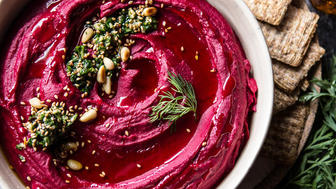In the African American community, food has a very seasoned history. People of color have often made the best of what they had and created some of the most creative dishes known to mankind. Imagine enslaved people taking the leftover scraps of food from plantation owners and making a lavish feast for their communities to dine on for survival. As generation after generation passes, I see trends in what and how we eat changing before my eyes. Take me, for example. I grew up eating many traditional black Southern meals. I can still smell pork chops frying on the stove, collard greens simmering with ham hocks, and a large pot of oxtails covered in thick brown gravy. Now as an adult, I can admit I’ve never actually cooked any of those things, but I do enjoy an oxtail or two when visiting back home. I am in no way a health guru, but many of the things I used to eat just don’t agree with my body anymore, and others simply aren’t appeasing.
As I look at my peers on social media, I see more of us moving towards eating healthier foods or living a more plant-based lifestyle. Our ancestors had very little, if any, choice as to what they ate, but we do. I do follow the "treat yo'self" mantra, but only in moderation. Coming from a family ridden with hypertension, diabetes and cancer, I know the odds aren't in my favor. As I get older, I find myself researching the things I eat and how they can positively or negatively affect my health. My hope is that the black community will trade these slavery-influenced survival meals for more sustainable, healthier alternatives.
According to the Centers for Disease Control and Prevention, heart disease and cancer are the first and second leading causes of death for African Americans. They also report that 44.8 percent of adult (20-years-old and up) black women and 40.9 percent of adult black men have hypertension. Holding on to slavery-influenced meals, as well as a plethora of disadvantages in wealth and education, have led to major health risks for our community.
Our generation has the ability to educate the next on the importance of healthy eating habits. Culturally, we aren’t often taught how to create a healthy, balanced meal. A brief run down of the food pyramid once a year in health class isn’t going to make the impact needed to turn around the health of our people. Simply having access to healthy food isn’t going to stop the epidemic either. I believe it starts with those of us who have the means to educate ourselves on the matter at hand. Once educated, it is our responsibility to teach our children, parents, friends and loved ones about the benefits of changing their diets. This education begins with dispelling the belief that eating healthily or being vegetarian is more expensive, causes nutritional deficiencies or isn't a "black thing."
The key to eating healthy on a budget is actually cooking with real food, not ordering fast food. There are no true short cuts to this method. You must go to the grocery store or farmer’s market and buy real food. If fresh veggies cost too much for you, try substituting them with frozen veggies. Only use canned veggies as a last resort. Dry beans and rice are also two of the most inexpensive kinds of healthy food in the supermarket.
As for the case on nutritional deficiencies: Although a study published by the National Center for Biotechnology Information has shown that individuals who don't eat meat may be at risk for a Vitamin B12 deficiency, the same study demonstrated that not eating meat may also decrease your risk for heart disease, Type 2 Diabetes and other health concerns. Ultimately, checking your levels during a yearly check-up with your physician can help make sure you stay within a healthy range — whether you are a vegetarian, "flexitarian" (meaning you only eat meat a few times a week) or regular meat eater.
Lastly, the idea that it isn't a "black thing" is similar to individuals purporting that all black people speak a certain way, and the same way, just because we are black. It implies that we aren’t educated enough on our own to want to eat healthily and live a healthy lifestyle, so we have to be doing it as a form of replicating what we see another race doing. Let’s just be honest, both ideologies are absolute nonsense. As we fight injustices in every arena, let’s make sure we don’t forget the one located right in our homes, in our kitchens and at our cookouts or barbecues. Let’s move forward equipped with knowledge to feed our future nutritiously.
Ready. Set. Boss. Our daily email is pouring out inspiration with the latest #BlackGirlBossUp moments, tips on hair, beauty and lifestyle to get you on track to a better you! Sign up today.
